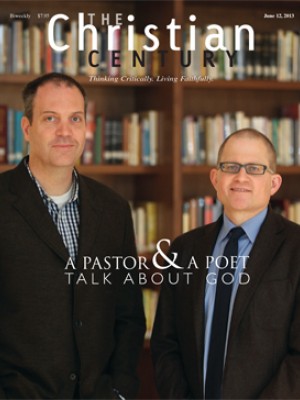A response to "Pulpit rotation" Case by case: Case by case

Read Ellen Blue's fictional narrative first.
We get a glimpse here of a pastor who is doing many things well. She is a leader willing to learn the rhythms of a farming community and the nature of the people in it. She has a passion for meeting local needs and for collaborating with other churches. It is a testament to her leadership that her congregation has accepted its first female pastor with only a “modicum of hesitation.” We can assume that congregation members are hearing others in town express reservations about women in ministry, but they are choosing to stand with her.
Though Madeline is supported by her congregation in important ways, some issues of communication need attention. In order to avoid conflict and perhaps to spare Madeline’s feelings, lay leaders have not been direct with her. They have discussed Madeline’s role in the Thanksgiving service among themselves and made decisions about their participation—but without getting her input.
Read our latest issue or browse back issues.
While congregational leaders may feel they would be supporting her by staying away from the Thanksgiving service if she isn’t the preacher, in fact they are setting her up to fail in the community. In a way, they are usurping Madeline’s role and taking the power of decision making out of her hands, just as the other pastors in town are doing.
Effective ministers learn to read the unwritten rules of church and community, and Madeline cannot do that without some honest conversations with her parishioners. It would be good for her to sit down with key lay leaders and ask probing questions. Lay leaders need to know that they cannot insulate Madeline from the community, and she must be part of conversations about the church’s role in town.
Madeline might also encourage the congregation to consider how this dilemma can be an opportunity for congregational formation and witness. This situation offers a good occasion for a public discussion of biblical and historical views of women in ministry. Holding such a forum risks arousing animosity from neighboring churches, but it would also open the door to deeper theological reflection. This could be a chance for Madeline to share her personal experiences. Even better, other speakers might be brought in to offer the prophetic word for women in ministry so that Madeline does not feel as though she must defend herself. Through this process, the congregation and perhaps even some in the wider community could begin a necessary conversation.
As Madeline works on issues in the congregation, she also needs to address her place in the Ministerial Alliance. If she decides to formally oppose and confront the other ministers, she may well end up being dismissed as “an angry feminist.” In a small town like this, acquiring such a label will only confirm long-held negative opinions about women in church leadership. In pressing her case, she may lose a long-term chance to minister in the community. Her very presence as an ordained pastor in this town and the service she offers to the community speaks volumes about what women leaders are capable of. Does she want to risk forfeiting that ministry?
Ultimately, it is not Madeline’s responsibility to “fix” deeply held ideas about women’s roles. It might be best to seek out the other local ministers individually and tell them about her commitment to the community and the Ministerial Alliance. She can express her desire to participate in the Thanksgiving service, even if she is not the preacher. This would help Bill Jarvis and the others understand that Madeline plans to remain an active minister in the community and is intent on finding creative ways of working with others.
Finally, Madeline needs to organize a stronger support system. All pastors struggle if they do not have mentors and friends, and this is especially true for a minister in her position. The counsel she has received so far has not been satisfactory. The regional minister could help get a support system in place, including women pastors who have faced similar challenges. With this kind of support, Madeline may feel renewed hope for her future in this small town.






